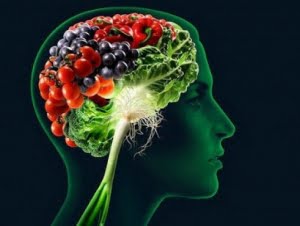 Christine Sloat, MS, RD, CDN
Christine Sloat, MS, RD, CDN
It seems that every day we hear of more research on how the mind and body are connected. Especially when it comes to the foods we eat. A person’s diet can affect mood, behavior and brain function. What you eat can make you feel irritable and restless or a calm and productive. Yet it is hard to know what the best options are!
It turns out that the nutrition guidelines for mental health are the same as those for a general healthy diet. That is, one that promotes balance, variety and moderation.
But perhaps most important to mental health is a word we hear often in this field: balance.
In regards to diet, balance means eating the appropriate amount from ALL the food groups. This ensures that your body has access to carbohydrate, protein and fat; all which play important roles in your physical and mental health. Let’s take a look:
Carbohydrates:
While many people falsely believe carbohydrates to be fattening, carbs are actually the sole fuel source for our brains. In fact, your brain needs a steady supply of complex carbohydrate in order to maintain your blood sugar. And inconsistent intake can lead to drastic fluctuations in blood sugar, which can trigger symptoms of anxiety and depression.
The Key: Your body needs carbohydrates!! But remember moderation and portion size control!
Protein:
These foods provide the building blocks for many important mental health hormones. In fact, tryptophan (a component of protein found in meat) can actually be converted into serotonin, your feel good neurotransmitter. While tyrosine (a component of protein found in dairy foods) can be used to make dopamine, the pleasure-seeking hormone.
The Key: Protein is extremely important for mental health, yet different sources have different roles. Try to vary the types of protein foods in your diet!
Fat:
More than half your brain tissue is made of fatty acids, making fat one of the most important nutrients for mental health. That being said, you want to look for unsaturated fat sources, which are liquid at room temperature, rather than saturated fats. Unsaturated fats can come under many names, including omega-3s, DHA or EPA; find them in olive oils, fish and nuts.
The Key: Not all fat is equal. Unsaturated fats are highly beneficial to the brain and body, while saturated fats can be detrimental.
Still unsure what to eat to support your brain and your body. Schedule an appointment with Christine Sloat, Registered Dietitian at the Capital Counseling/EAP offices to work on finding an individualized plan.
